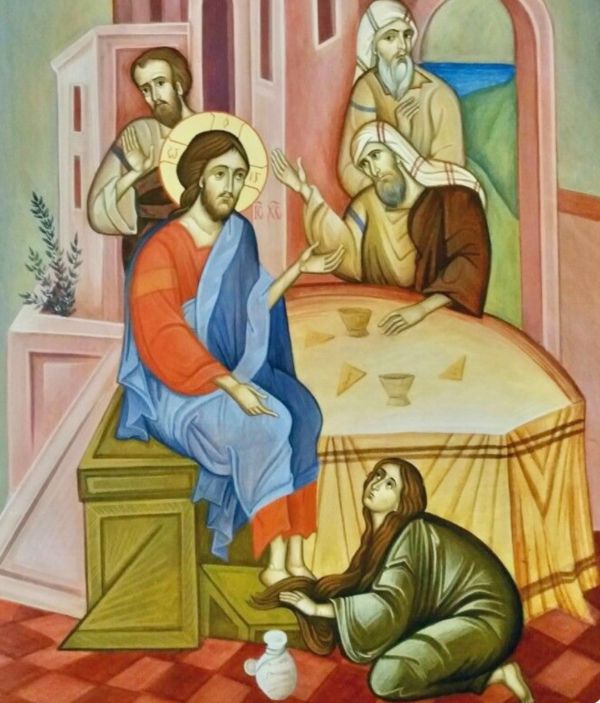The supper at Bethany is one of the most beautiful and moving passages in John's Gospel.
Mary sprinkles Jesus' feet with a pound of highly perfumed spikenard oil, which Jesus accepts as a foreshadowing of his burial. Onlookers are scandalised by the 'waste'.
Francis of Assisi, thinking of the Passion and death of Jesus, mourned the unloved Love in every way; in every place and person.
He recognised him especially in the poor and derelict, in the lepers kept on the margins of society - and among them he poured out the perfume of Charity without which we are only tinkling cymbals.
The Sources help us look for and spot episodes that depict this washing of Jesus' feet and perfuming them in the abandoned and rejected.
"Loving every form of humility, she moved in with the lepers, staying with them and serving them all with great care.
He washed their feet, bandaged sores, removed the rot from sores and cleansed them of purulence.
He would also, driven by admirable devotion, kiss their festering wounds, he who would soon become the Good Samaritan of the Gospel" (FF 1045).
The Minim sprinkled with compassion and love the feet of those wounded by life and anointed them with the oil of consolation.
His thoughtful humility was evidenced by the way he placed himself at everyone's feet.
"One day mounted on a donkey, because weak and infirm he could not go on foot, he crossed the field of a farmer, who was working.
The latter ran up to him and asked him thoughtfully if he was Brother Francis. He humbly replied that he was the one he was looking for:
"See," said the peasant, "that you are as good as everyone says you are, for many have confidence in you. That is why I urge you never to behave differently from what you hope".
Francis, at these words, dismounted from the donkey and, prostrating himself before the farmer, several times kissed his feet humbly thanking him that he had deigned to admonish him" (FF 726).
Standing at the feet of every creature, the Poverello exhaled "the waste" of that charity, the preventer and healer of all evil.
So was Clare, sprinkling the special ointment of Love that aims to heal and resurrect those who lie in human forgetfulness.
The «feet» in the Franciscan path, are a place of encounter, of loving exchange, of nakedness that all awaits from every creature of good will.
The feet of the humble, of the poor, of the sick were for Francis and Clare the crucified feet of the Son of God, nailed to the cross so that we might all walk towards one another.
«Mary then took a pound of genuine spikenard perfume of great value, anointed the feet of Jesus and dried his feet with her hair. Now the House was filled with the fragrance of the perfume» (Jn 12:3)
Holy Monday (Jn 12:1-11)












